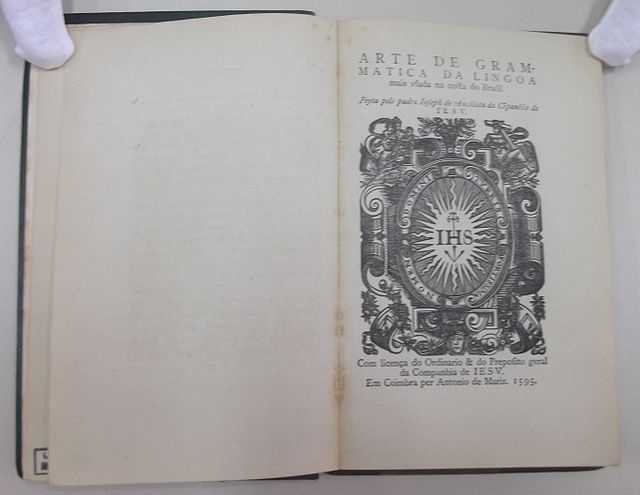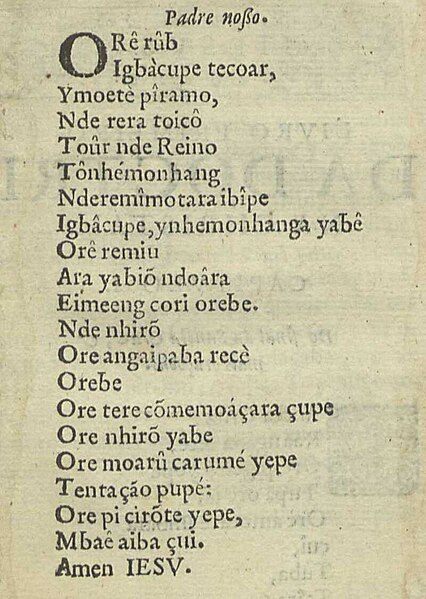Paraíba is a state of Brazil. It is located in the Brazilian Northeast, and it is bordered by Rio Grande do Norte to the north, Ceará to the west, Pernambuco to the south and the Atlantic Ocean to the east. Paraíba is the third most densely populated state of the Northeast; João Pessoa, the sea-bordered state capital, and Campina Grande, in the interior, rank among the fifteen-largest municipalities in the Northeast of Brazil. The state is home to 1.9% of the Brazilian population and produces 0.9% of the Brazilian GDP.
Coat of arms of the Captaincy of Paraíba
Frederiksstad, modern-day João Pessoa, in 1638, by Frans Post
João Pessoa Cavalcanti de Albuquerque, governor of Paraíba from 1928 to 1930, the year of his assassination
João Pessoa's mausoleum
Old Tupi, Ancient Tupi or Classical Tupi is a dead Tupian language which was spoken by the aboriginal Tupi people of Brazil, mostly those who inhabited coastal regions in South and Southeast Brazil. In the words of Brazilian tupinologist Eduardo Navarro, "it is the classical indigenous language of Brazil, and the one which had the utmost importance to the cultural and spiritual formation of the country".
Joseph of Anchieta (1534–1597), the first grammarian of Tupi, as envisioned by Antônio Parreiras
Facsimile of the Art of Grammar of the Most Used Language on the Coast of Brazil
Although the martial art is of African origin, the word "capoeira" comes from Tupi, more precisely from ka'a-pûer-a, which means "forest that was". Painting by Johann Moritz Rugendas (1835)
The Lord's Prayer as in the Catechism in the Brasílica Language (1618)








